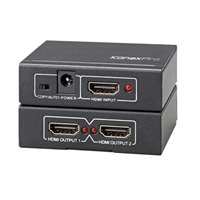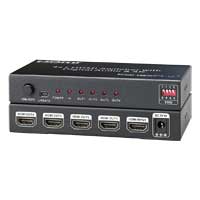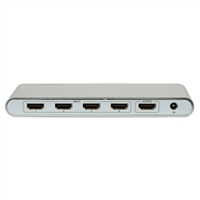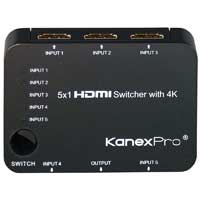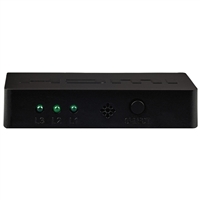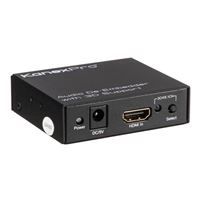Breadcrumbs
- Selected Refinements:
- USB/FireWire Hubs & Switch Boxesx
- Audio/Video Switchx
- RCAx
- 2 Stars and Upx
- KanexProx
Special Offers / Advertisements
Compare up to 4 items
New list of matching products
X
Sorry, you may compare a maximum of 4 items at a time.
Please clear one or more of your compare items before adding another-
1 IN STOCK at Brooklyn StoreOur price $54.99
-
3 IN STOCK at Brooklyn StoreOur price $89.99
-
2 IN STOCK at Brooklyn StoreOur price $129.99
-
2 IN STOCK at Brooklyn StoreOur price $59.99
-
2 IN STOCK at Brooklyn StoreOur price $24.99
-
2 IN STOCK at Brooklyn StoreOur price $129.99
Special Offers / Advertisements
{
'name': '2-Port 4K HDMI Splitter',
'id': '488948',
'price': '54.99',
'brand': 'KanexPro',
'category': 'Audio/Video Switch|443',
'list': 'Search Results',
'position': 1
},{
'name': '4-Port 4K HDMI Splitter',
'id': '488949',
'price': '89.99',
'brand': 'KanexPro',
'category': 'Audio/Video Switch|443',
'list': 'Search Results',
'position': 2
},{
'name': 'HDMI Switcher 5x1 w/ 4K UHD & HDCP',
'id': '488955',
'price': '129.99',
'brand': 'KanexPro',
'category': 'Audio/Video Switch|443',
'list': 'Search Results',
'position': 3
},{
'name': '5x1 HDMI Switcher with 4K Support',
'id': '488946',
'price': '59.99',
'brand': 'KanexPro',
'category': 'Audio/Video Switch|443',
'list': 'Search Results',
'position': 4
},{
'name': '3x1 HDMI Switcher',
'id': '479096',
'price': '24.99',
'brand': 'RCA',
'category': 'Audio/Video Switch|443',
'list': 'Search Results',
'position': 5
},{
'name': 'Audio De-Embedder with 3D Support',
'id': '488941',
'price': '129.99',
'brand': 'KanexPro',
'category': 'Audio/Video Switch|443',
'list': 'Search Results',
'position': 6
}

